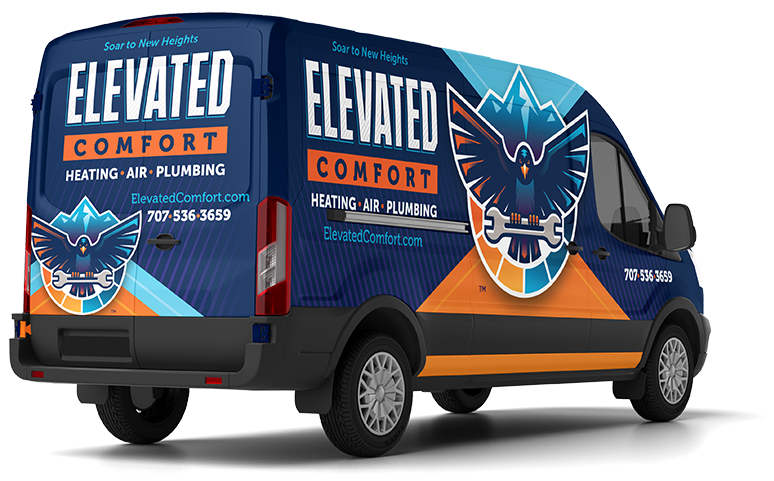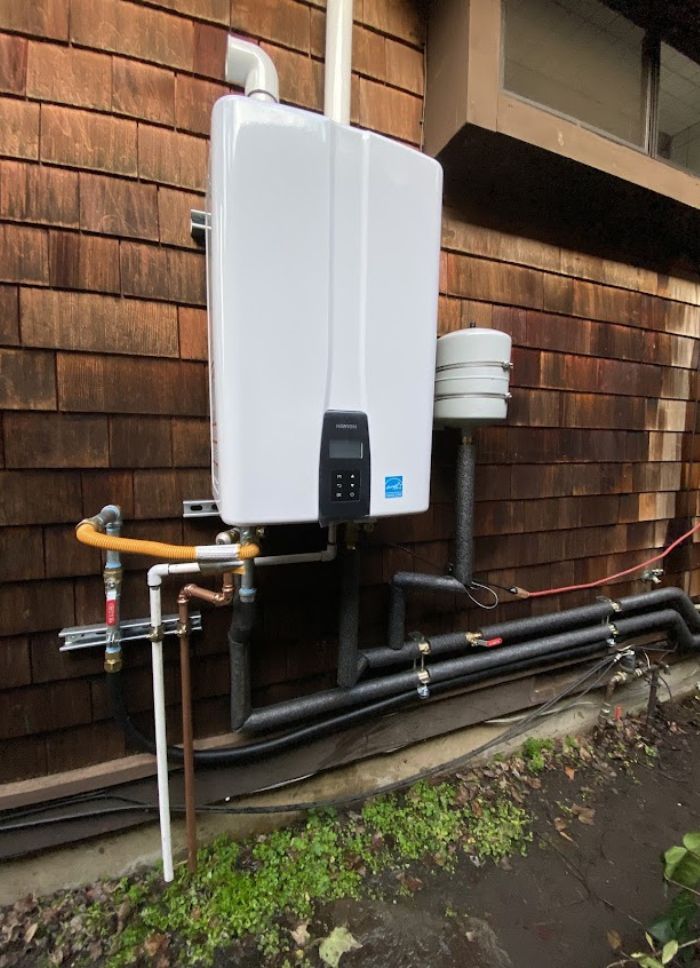Elevate Your Comfort
Count on the Top Tankless Water Heater Service in American Canyon, CA | Over 500 5-Star Reviews
Our locally owned, family-run company is passionate about providing our customers, who also are our neighbors, with the best Tankless Water Heater services and products for the best value.
-
4.9 Star Rated
-
20+ Years of Experience
-
Family Owned & Locally Operated
-
100% Satisfaction Guarantee
-
Straightforward Pricing
Trust the Experts
American Canyon’s Most Trusted & Professional Tankless Water Heater Installation Company
Elevated Comfort is the go-to provider for tankless water heater services in American Canyon, offering homeowners efficient and reliable solutions tailored to their needs. Our experienced team specializes in the installation, repair, and maintenance of tankless water heaters, ensuring consistent access to hot water while maximizing energy efficiency.
From consultation to completion, we guide customers through every step of the process, helping them select the right tankless water heater model for their home and lifestyle. With meticulous attention to detail, we ensure seamless integration into existing plumbing systems, providing homeowners with long-lasting and cost-effective solutions for their hot water needs.
Whether it’s installing a new tankless water heater, repairing a malfunctioning unit, or conducting routine maintenance, American Canyon residents can trust Elevated Comfort to deliver superior service and expertise in tankless water heater services.
Get A Quick Quote
Why Choose Us?
Elevated Comfort Provides Affordable Tankless Water Heater Services
As a family-owned business deeply rooted in the American Canyon, CA area, your complete satisfaction is our top priority when servicing your tankless water heater systems. We take great pride in our active involvement in the communities we serve and in fostering enduring relationships with our clients.
-
Fully Licensed & Insured
-
Professional Trained & Certified Technicians
-
Over 500 5-Star Reviews from Your Neighbors
We take home comfort
to new heights!

American Canyon’s Premier Tankless Water Heater Solutions: Elevating Your Comfort
In American Canyon, Elevated Comfort offers a unique approach to tankless water heater installation and repair, distinguished by its expertise and customer-centric focus. Our skilled technicians begin by conducting a thorough assessment of the property’s hot water needs and infrastructure, ensuring the tankless system is the right fit for the household.
What sets us apart is our specialization in tankless water heaters, allowing us to provide tailored solutions that maximize efficiency and performance. Whether it’s a new installation or repairing an existing unit, we prioritize precision and reliability, utilizing advanced diagnostic tools and techniques to identify and address any issues promptly.
Our commitment to transparency means that customers are kept informed throughout the process, empowering them to make well-informed decisions about their water heating systems. With Elevated Comfort, homeowners in American Canyon can trust us to deliver top-quality tankless water heater installation and repair services that meet their needs and exceed their expectations.

HVAC Maintenance Program
With Elevated Comfort’s maintenance program, you can avoid costly repairs down the road by taking care of your HVAC system before problems arise. Regular maintenance is the key to longer-lasting HVAC systems.
Discover the savings with Elevated Comfort’s exclusive coupons for HVAC maintenance. Don’t miss out on our limited-time coupons to make service more affordable and keep your home comfortable and efficient.
Over 450 5-Star Reviews!
See Why Your Neighbors in American Canyon Rate Us The Top Tankless Water Heater Company
Answers to Your Questions About Tankless Water Heaters
We know there are a lot of Tankless Water Heater Companies in American Canyon, and you deserve the best. With Elevated Comfort, you can trust that our experts have the answers to all your questions and treat your home as if it was their own.
Unlike traditional water heaters that store hot water in a tank, tankless water heaters heat water on demand. They use high-powered burners to rapidly heat water as it passes through a heat exchanger, providing a continuous supply of hot water without the need for a storage tank. This results in energy savings and a more compact design.
Tankless water heaters offer several advantages, including endless hot water supply, energy efficiency, space-saving design, and longer lifespan compared to traditional tank-style heaters. They also eliminate the risk of standby heat loss, reducing energy consumption and utility bills over time.
Tankless water heaters typically require less maintenance than traditional units. However, it’s essential to schedule annual maintenance to ensure optimal performance and efficiency. During maintenance, a technician will inspect the unit, clean the heat exchanger, check for mineral buildup, and test for proper functioning to prevent potential issues and extend the lifespan of the system.
Tankless water heaters are suitable for most homes, but certain factors should be considered before installation. These include the size of the home, water usage patterns, electrical or gas supply, and available space for installation. Additionally, homes with high hot water demand may require multiple units or larger capacity models to meet the household’s needs effectively. Consulting with a qualified technician can help determine the best tankless water heater solution for your home.

We Offer More Than Just Tankless Water Heater Services
Elevated Comfort provides a comprehensive suite of home comfort services, including expert HVAC, and air quality solutions. Our dedicated team ensures your home remains a haven of comfort and efficiency, all year round.

Ductless Mini-Splits
Flexible payment options for sustainable home upgrades.
Apply in minutes. Get approval in seconds.



